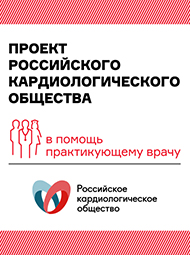Renal function decline common in patients with AF prescribed anticoagulants
Deterioration of renal function, and an increase in related adverse events, may not be unusual in patients with nonvalvular atrial fibrillation prescribed nonvitamin K antagonist oral anticoagulants, according to recent study results in Heart and Vessels.
“Renal function is crucial in patients with nonvalvular AF who are to be treated with nonvitamin K oral anticoagulants,” the researchers wrote. “However, the incidence of renal function deterioration during anticoagulation therapy and its impact of adverse events, including major bleeding, are unknown.
Koji Miyamoto
Koji Miyamoto, MD, PhD, of the division of arrhythmia and electrophysiology, department of cardiovascular medicine, the National Cerebral and Cardiovascular Center, Japan, and colleagues enrolled 807 patients with nonvalvular AF. All participants had an estimated creatinine clearance of at least 50 mL/minute (mean age, 68 ± 11 years) at baseline.
Patients were treated with three direct-acting oral anticoagulants, including dabigatran (Pradaxa, Boehringer Ingelheim) at 300 mg/day (n = 200) or 220 mg/day (n = 312); rivaroxaban (Xarelto, Janssen Pharmaceuticals) at 15 mg/day (n = 165) or 10 mg/day (n = 100); and apixaban (Eliquis, Bristol-Myers Squibb) at 10 mg/day (n = 18) or 5 mg/day (n = 12). Patients were then divided into two groups based on renal function.
Patients in group A (n = 751; 93%) had a preserved estimated creatinine clearance of at least 50 mL/minute during follow-up, whereas patients in group B (n = 56; 7%) had an estimated clearance of less than 50 mL/minute during follow-up. Decline in renal function was indicated by CHADS2, CHA2DS2-VASc and HAS-BLED scores (P < .0001). In patients with CHADS2 scores of 0, 1, 2 and at least 3, rates of deterioration were 1.4%, 3.4%, 10.5% and 11.7%, respectively. Renal function decline was noted in 0%, 1.7%, 9.8% and 15% in patients with CHA2DS2-VASc scores of 0, 1 to 2, 3 to 4 and at least 5, respectively. Advanced age, lower body weight and congestive HF were independent indicators of renal deterioration among patients with a baseline estimated creatinine clearance of at least 50 mL/minute.
Major and/or minor bleeding events occurred more frequently in patients in group B than in group A (21% vs. 8%; P = .0004). Adverse events were also more common in patients in group B than in group A (36% vs. 24%; P = .04), as was drug discontinuation due to adverse events (27% vs. 13%; P = .004).
“It should be borne in mind that most patients with AF who are receiving anticoagulation therapy have higher than normal risk not only for stroke events but also for renal function deterioration,” the researchers write. “Renal function deterioration is not uncommon in AF patients receiving anticoagulation therapy, even if the renal function is preserved when anticoagulation therapy starts. Renal function deterioration is associated with increased incidence of adverse events, including major bleeding. … The CHADS2, CHA2DS2-VASc and HAS-BLED scores could be useful as an index predicting renal function deterioration in patients receiving anticoagulation therapy.”
Regular monitoring of laboratory data — including renal function and hematological values — during anticoagulation therapy is recommended, Miyamoto told Cardiology Today. – by Julia Ernst, MS
Disclosure: Miyamoto reports receiving lecture fees and honoraria from Bayer, Boehringer Ingelheim, Bristol-Myers Squibb, Daiichi-Sankyo and Pfizer. Please see the full study for a list of all other authors’ relevant financial disclosures.
Source: www.healio.com






